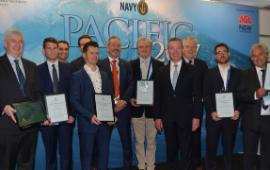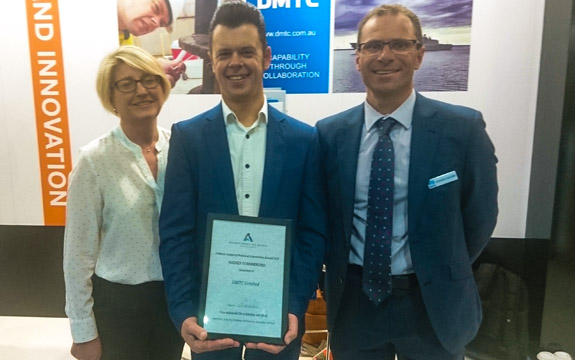Submarine corrosion research receives high commendation

In Summary
- Swinburne researcher recognised by the Maritime Australia Industry Innovation Awards
- Working with Defence Materials Technology Centre to reduce corrosion in submarines
- The work is delivering impact to the Royal Australian Navy
A Swinburne researcher has been recognised for his work in reducing corrosion in submarines, delivering industrial benefits for the sector and cost savings for the Royal Australian Navy (RAN) and Defence.
Swinburne Associate Professor Scott Wade and his team of researchers from the Defence Materials Technology Centre (DMTC) were recognised at the Maritime Australia Industry Innovation Awards for their work involving Microbiology Induced Corrosion (MIC) of maritime platforms.
The judging panel – which includes former Chiefs of Navy –recognised the work with a “High Commendation” under the major award category.
"It's great that the efforts of the team members involved in the collaborative project has been recognised in these awards,” says research leader and senior lecturer, Swinburne’s Associate Professor Wade.
“The project is an excellent example of how industry and universities can come together to help solve real world problems."

Margaret Law (Manager, Future Submarine Capability for ASC), Associate Professor Scott Wade and Associate Professor Stephen van Duin.
The work has so far delivered significant impact to the RAN and to the ASC (formally the Australian Submarine Corporation).
"At Swinburne, we continue to work on improving the understanding of the complex problem of microbiologically influenced corrosion and how we can minimise its effect to various key industries," Associate Professor Wade says.
DMTC CEO Mark Hodge says “it is tremendous recognition of the quality and impact of our work, and of course that of Swinburne, noting the fundamental role played by Scott and his team.”
“We anticipate this work will continue to have benefits in current and future Defence projects.”

